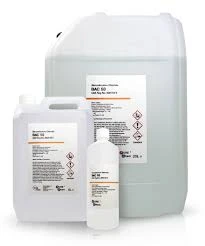inhibitor water treatment
Inhibitor Water Treatment Enhancing Efficiency and Sustainability
Water treatment is a critical aspect of maintaining clean and safe water for various applications, including industrial processes, municipal supply, and agricultural use. One of the key challenges in water treatment is the control of problematic substances, such as scale formation and corrosion. Inhibitor water treatment offers a promising solution to these challenges by using specific chemicals designed to interfere with undesirable reactions in water systems.
What are Inhibitors?
Inhibitors are chemical substances that, when added to a system, significantly reduce or prevent unwanted reactions. In the context of water treatment, inhibitors are primarily used to control scale deposition and corrosion of pipes and equipment. Scale formation can occur when mineral concentrations in water exceed their solubility limits, leading to deposits that can obstruct flow and reduce heat transfer efficiency. Corrosion, on the other hand, is the deterioration of metals due to chemical reactions with their environment, often accelerated by the presence of oxygen and aggressive ions.
Types of Inhibitors
There are several categories of inhibitors used in water treatment processes
1. Scale Inhibitors These chemicals disrupt the crystallization process of scaling minerals, such as calcium carbonate, calcium sulfate, and magnesium silicate. Examples include polyphosphates, phosphonates, and organic polymers. By inhibiting scale formation, these substances enhance the operational efficiency of cooling towers, boilers, and other water systems.
2. Corrosion Inhibitors These additives form a protective film on metal surfaces or alter the electrochemical properties of the water, thereby reducing the rate of corrosion. Common corrosion inhibitors include nitrites, chromates, and imidazolines. Each inhibitor is chosen based on the type of metal, the nature of the water, and the specific application.
3. Biocides In certain water treatment scenarios, microbial growth can lead to biofouling, which exacerbates corrosion and scaling. Biocides, such as chlorine, bromine, and quaternary ammonium compounds, are often used alongside scale and corrosion inhibitors to maintain water quality by controlling biological growth.
Benefits of Inhibitor Water Treatment
inhibitor water treatment

The implementation of inhibitor water treatment systems provides numerous benefits
- Improved Efficiency By preventing scale and corrosion, inhibitors help maintain the efficiency of heating and cooling systems. This translates to energy savings and reduced operational costs.
- Extended Equipment Life Inhibitors reduce wear and tear on water systems, leading to longer equipment lifespans and decreasing the need for frequent repairs or replacements.
- Environmental Considerations Inhibitor systems can minimize the need for harsh cleaning chemicals and lower the environmental impact of water treatment processes. Furthermore, maintaining optimal system performance can lead to reduced water and energy consumption, contributing to overall sustainability.
- Compliance with Regulations Many industries are subject to stringent environmental regulations regarding water quality and discharge. Inhibitor treatments help facilities meet these requirements effectively and efficiently.
Challenges and Considerations
While the benefits of inhibitor water treatment are clear, several challenges must be addressed. The choice of inhibitors depends on specific water chemistry, operational conditions, and environmental concerns. Additionally, over-reliance on certain inhibitors may lead to issues such as toxicity or environmental persistence. Therefore, continuous monitoring and adjustment of inhibitor concentrations are essential for optimal performance.
Conclusion
Inhibitor water treatment represents a crucial advancement in the field of water management, offering effective solutions to combat scale and corrosion while promoting efficiency and sustainability. As industries continue to prioritize environmental responsibility and cost-effectiveness, the role of inhibitors in water treatment is likely to expand, paving the way for innovative approaches that enhance water quality and support resource conservation. By integrating inhibitor systems into existing water treatment practices, organizations can not only improve operational performance but also contribute positively to the environment.
-
lk-319-special-scale-and-corrosion-inhibitor-for-steel-plants-advanced-solutions-for-industrial-water-systemsNewsAug.22,2025
-
flocculant-water-treatment-essential-chemical-solutions-for-purification-processesNewsAug.22,2025
-
isothiazolinones-versatile-microbial-control-agents-for-industrial-and-consumer-applicationsNewsAug.22,2025
-
scale-inhibitor-key-solutions-for-water-system-scale-preventionNewsAug.22,2025
-
organophosphonates-versatile-scale-inhibitors-for-industrial-water-systemsNewsAug.22,2025
-
scale-and-corrosion-inhibitor-essential-chemical-solutions-for-water-system-maintenanceNewsAug.22,2025





